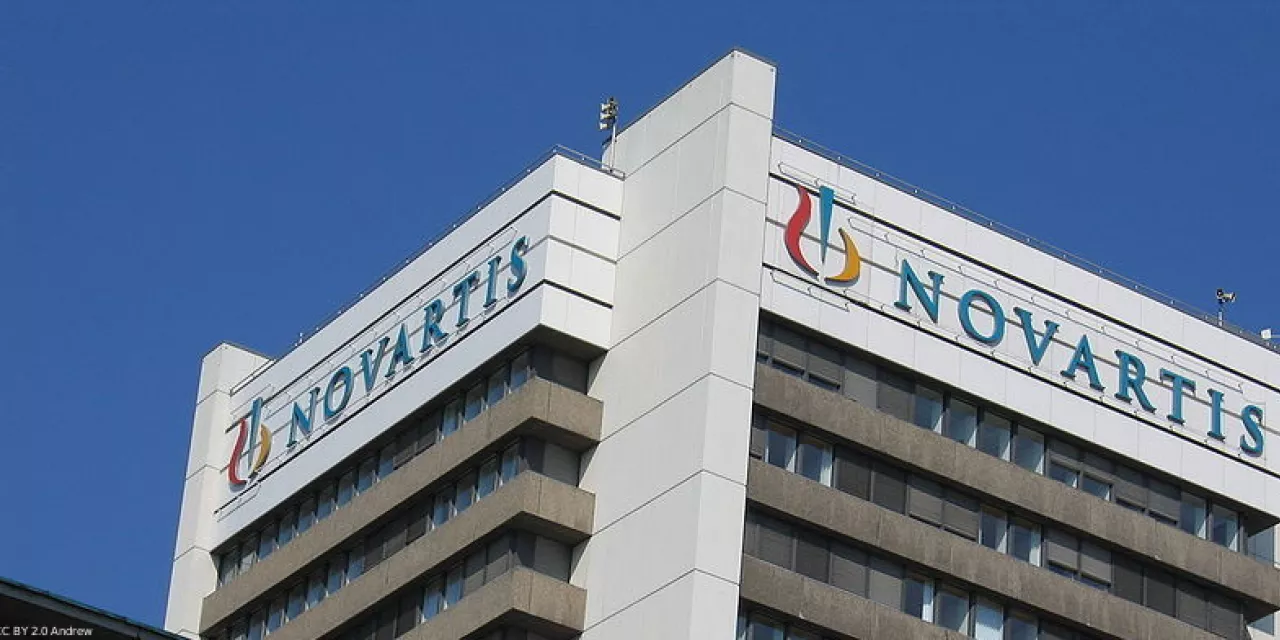The BigBrotherAward 2007 in the “Workplace“ category goes to Novartis Pharma GmbH represented by their CEO, Dr Peter Maag, for spying upon their employees and the resulting breach of personality rights.
What does one expect from a company that has voluntarily committed itself to fair action on various occasions? For instance, through the code of conduct of an association called “Voluntary Self-control For The Pharmaceutical Industry” (Freiwillige Selbstkontrolle für die Arzneimittelindustrie)? From a company that has joined the “FairCompany Initiative” to demonstrate its fairness as an employer? A company that professes publicly to be willing to promote a positive work/life balance and boasts high ranks in more or less independent employers’ ratings? That promises respect for human rights and fair working conditions in its “Corporate Citizenship Guidelines”?
By no means would one expect that it has a standard procedure of sending detectives after its sales representatives to meticulously take minutes of their visits to GPs and pharmacies. Neither does one expect that results from a survey at the work place, which was expressly declared confidential, are returned to the employees with an appraisal from the human resources department. Just as one does not expect that the agency entrusted with carrying out this survey reacts to complaints from the employees by saying: “You can’t have been that naïve!” (i.e. to think that the employer would really not get to see the results.)
Those who did think that self-regulation actually works are in for a big disappointment.
Quite obviously the company has difficulties to implement its self-imposed claims to fairness when employees don’t function to perfection.
Especially when it comes to the sales force, the reality seems to be closer to the state of war that was evoked a few years ago, namely when the CEO of the pharmaceutical branch of Novartis AG tried to motivate his sales representatives with slogans like “Kill To Win – No Prisoners”. It was then at the latest that the company showed how it regards the ideal world of its glossy brochures with their propagated respectful attitudes: not really suited for everyday use. Even if the wording had to be toned down after protests, martial vocabulary still dominates internal communications, as one can see from conference papers of the German branch of Novartis Pharma GmbH. “The best product, the best weapons.” “Street fighting.” “To redline and attack the competition without compromise.”
How does one go about “lustily sweeping in” respectfully?
Not every sales representative seems to be able to manage that balancing act. And not every one is able to reach the required, unrealistically high “average” of daily visits to doctors and pharmacies by legal means. It appears unavoidable that this pressure leads to little and not-so-little fibs when one doesn’t want to face severe losses of income.
A high need of surveillance is all too easily justified by this self-inflicted situation, and thus the company goes to war not just against their competitors but against their own employees, too. And they are not exactly squeamish in their choice of weapons. Along with the inofficial encouragement of employees to squeal on their colleagues, sleuths are being sent after sales staff to meticulously write down the details of each visit. “Seek, and ye shall find”, and each find makes it easier for the company to get rid of an unwanted employee. Such continuous surveillance in violation of personality rights seems to be standard behaviour – even the works council feels a need to warn about this in one of its publications. And we might ask ourselves whether the works council shouldn’t protect the employees against such measures, rather than just inform about them.
Apparently, there is some method in this carefree approach to personality rights of the employees, despite all the standards set by self-commitments. This must be the only explanation why the results of a supposedly confidential online survey, termed “self-assessment”, were returned to employees a short time later: personalised, rated and with suggestions for improvement from the staff department.
It is hardly surprising, then, to hear about obstructions of visits to staff meetings, illegal publications of so-called “racing lists” as well as sick leave lists, and about the mail to the works council being habitually opened of in the post room.
Novartis Pharma GmbH still have a lot of fighting to do on the data protection front, Dr Maag. Congratulations for receiving the Big Brother Award!
Laudator.in





